#Glenn Gould at Work
Explore tagged Tumblr posts
Text
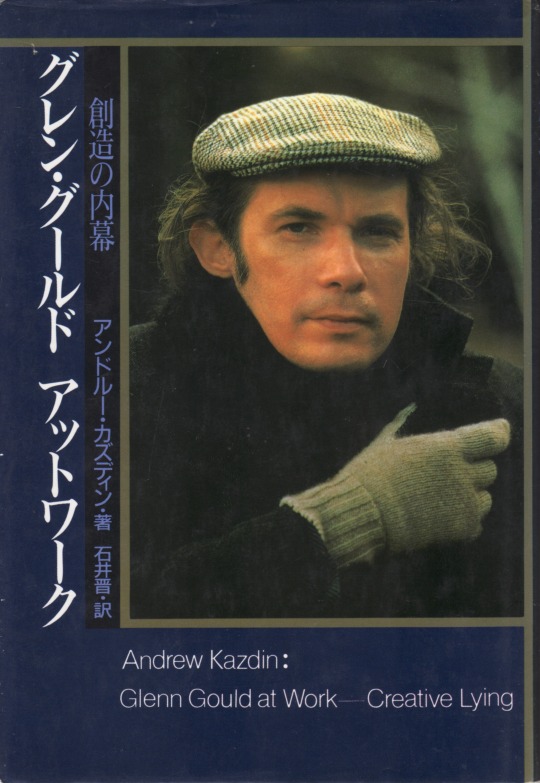
グレン・グールド アットワーク-創造の内幕 アンドルー・カズディン、石井晋・訳 音楽之友社
#Glenn Gould at Work: Creative Lying#Glenn Gould at Work#glenn gould#グレン・グールド アットワーク-創造の内幕#グレン・グールド アットワーク#グレン・グールド#Andrew Kazdin#アンドルー・カズディン#石井晋#anamon#古本屋あなもん#あなもん#book cover
11 notes
·
View notes
Text
espite his towering influence, particularly on the academic left, Edward W. Said today seldom shows up on the list of dangerous thinkers loathed by conservatives or blamed for undermining the Western academy. Whether intentional or not, this conservative ambivalence about Said’s legacy is merited. While he is considered the godfather of postcolonialism, a theoretical approach toward accounting for the legacy of colonialism, Said’s personal life and intellectual output defy any simplifying labels that might be placed upon him — whether by the left or the right. Rather than a mere critic of the Western canon, Said was a sophisticated thinker who saw both colonizers and the colonized as inheritors of a shared cultural patrimony.
Said’s universalism shone brightly in his passion for classical music, a conservative artistic milieu if there ever was one. In addition to his university responsibilities and political activism, Said was the classical music and opera critic for The Nation from 1986 until shortly before his death from leukemia in 2003. His writings on music are less widely known than his political and scholarly output, though Columbia University Press has dutifully collected and published them over the years, including in a collection released this year, titled “Said on Opera.”
Said’s love of classical music was not merely a pastime. Toward the end of his life, Said attempted to blend two of his worlds — politics and music — by co-founding the East-West Divan Orchestra, which sought to unite Israeli and Arab musicians within a shared cultural project. The decision to create such an organization, not without controversy, was a unique distillation of Said’s perspective on culture and politics. While he excoriated the injustices of Western imperialism, including the way that systems of knowledge were often deployed to crush the oppressed, he remained an ardent universalist. Said saw the cultural achievements of the West as part of a shared cultural heritage to be critiqued and grappled with, not an alien imposition to be rejected. It is that legacy, expressed in his love of opera, which makes revisiting Said as a scholar and humanist more necessary than ever in an era of political polarization and cultural turmoil.
Said was a talented pianist, having practiced as a child during his upbringing in Cairo and played to small audiences while an undergraduate at Princeton University. His rapid scholarly ascent in literary studies and his simultaneous work as a public spokesperson for Palestinians in the United States did not allow him to develop his musical abilities. Yet he remained an avid fan and critic throughout his life. In Said’s near-worship of Glenn Gould, the Bach performer extraordinaire, one could see the lingering allure of the piano virtuoso and even a potential alternative life path.
Though his appreciation for classical music and opera predated his academic interests and political concerns, Said brought his unique critical sensibility to bear in his essays on the subject. As the theater and opera director Peter Sellars writes in his preface to “Said on Opera,” “If you have spent the day, the week, the month, and the year opposing, with every cell in your body, the ratification of the Oslo Accords, which go through in spite of your opposition, and inaugurate an era of unprecedented Palestinian suffering and oppression, you come to Beethoven’s Opus 110 Sonata ready for the heights and the depths, the heartbreak, the despair, and the unfathomable consolations, generosity, and relief of this music.”
90 notes
·
View notes
Text
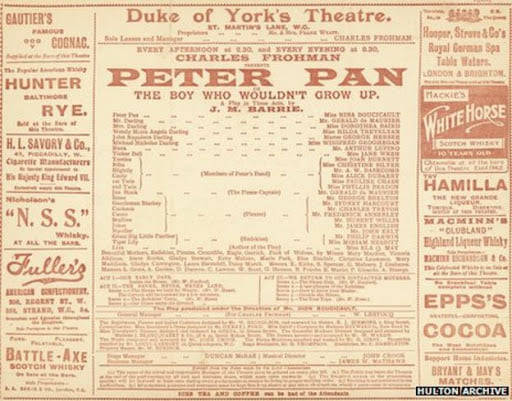
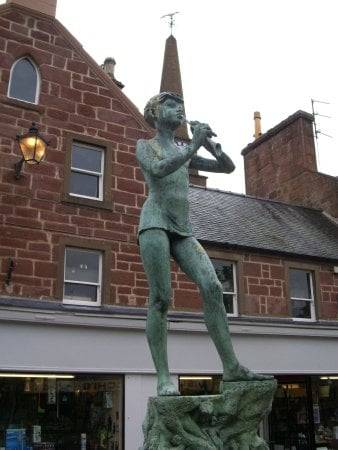
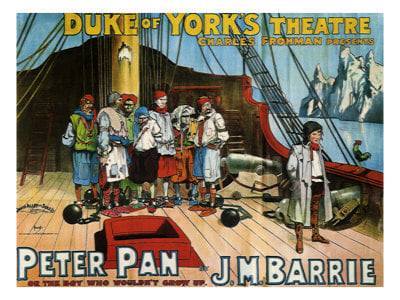
On December 27th 1904 J M Barrie's play "Peter Pan" premiered at the Duke of York Theatre, London.
J.M. Barrie created his character based on his older brother, David, who died in an ice-skating accident the day before his 14th birthday. His mother and brother thought of him as forever a boy. The "boy who wouldn't grow up"
The story of free-spirited and mischievous young boy who can fly and never grows up, Peter Pan spends his never-ending childhood having adventures on the mythical island of Neverland as the leader of the Lost Boys, interacting with fairies, pirates, mermaids, Native Americans, and occasionally ordinary children from the world outside Neverland.
Peter Pan has become a cultural icon symbolizing youthful innocence and escapism. In addition to two distinct works by Barrie, the character has been featured in a variety of media and merchandise, both adapting and expanding on Barrie's works. These include a 1953 animated film, a 2003 dramatic/live-action film, a television series and many other works.
J. M. Barrie first used Peter Pan 2 years before, as a character in a section of The Little White Bird, an adult novel where he appears as a seven-day-old baby in the chapter entitled Peter Pan in Kensington Gardens. Following the success of the 1904 play, Barrie's publishers, Hodder and Stoughton, extracted chapters 13–18 of The Little White Bird and republished them in 1906 under the title Peter Pan in Kensington Gardens, with the addition of illustrations by Arthur Rackham.
Barrie never described Peter's appearance in detail, even in his novel, leaving it to the imagination of the reader and the interpretation of anyone adapting the character. In the play, Peter's outfit is made of autumn leaves and cobwebs. His name and playing the flute or pipes suggest the mythological character Pan. Barrie mentions in Peter and Wendy that Peter Pan still had all his "first teeth".He describes him as a beautiful boy with a beautiful smile, "clad in skeleton leaves and the juices that flow from trees"
Traditionally, the character has been played on stage by a petite adult woman. In the original productions in the UK, Peter Pan's costume was a reddish tunic and dark green tights, such as that worn by Nina Boucicault in 1904. This costume is exhibited in Barrie's Birthplace museum at Kirriemuir.
In the Disney films, Peter wears an outfit that consists of a short-sleeved green tunic and tights apparently made of cloth, and a cap with a red feather in it. He has pointed elf-like ears, brown eyes and his hair is red. In Hook , the character is played as an adult by Robin Williams, with blue eyes and dark brown hair; in flashbacks to him in his youth, his hair is light brown. In this film his ears appear pointed only when he is Peter Pan, not as Peter Banning. His Pan attire resembles the Disney outfit (minus the cap). In the live-action 2003 Peter Pan film, he is portrayed by Jeremy Sumpter, who has blond hair and blue-green eyes. His outfit is made of leaves and vines.
Barrie commissioned a statue of Peter Pan by sculptor George Frampton which was erected overnight in Kensington Gardens on 30 April 1912 as a May Day surprise to the children of London. Seven statues have been cast from the original mould, they are in, Egmont Park, Brussels, Belgium, Bowring Park, St. John's, Newfoundland, Canada, Bowring Park, Johnson Park, Camden, New Jersey, USA, Queens Gardens, Perth, Western Australia, Sefton Park, Liverpool, and Glenn Gould Park, Toronto, Ontario, Canada.
Various other statues have appeared around the world, including three in Scotland, the first is at Mearnskirk Hospital for children in Glasgow, the first superintendent of the hospital, Dr John A Wilson, was a school friend of Barrie, the other one in Scotland is of course in Kirriemuir, one in the main town square and the other in the Peter Pan Garden by Barrie's Birthplace, now owned by the National Trust of Scotland.
The most famous of the other statues is at Great Ormond Street Hospital in London, who JM Barrie gifted the rights to the play in 1929, the copyright first expired in the UK (and the rest of Europe) in 1987, 50 years after Barrie’s death, but the government of the day made an amendment to the copyright act giving Great Ormond Street Hospital the unique right to royalties from stage performances of Peter Pan (and any adaptation of the play) as well as from publications, audio books, ebooks, radio broadcasts and films of the story of Peter Pan, in perpetuity.
34 notes
·
View notes
Text
Where we go from here...
It took me awhile last evening to get my mind in the right place to do the baking I had to do. I thought I would put on some music on my little radio station to kick my head into work mode. Tried some Glenn Gould playing Bach (always a go-to for morning coffee music), and it didn't hit right.
So I dialed up the huge mix I have titled "1969-72" and almost immediately started the long road back to feeling like myself. After about a half-hour, I was in the groove. Listened to the mix far into the night, after I'd finished working.
I managed to keep my focus and got the cookies all baked, and kiddo's mom happily packed them up and just left for her party, and I'm over here for the next couple of nights, sadly for my back. Two nights of "No Mattress For Old Men" and I'll need a week to recover, but hey...
Wanna thank all y'all for your comments and messages when I posted that I was prolly just gonna go black. Y'all loved me back off the ledge. Posted in a moment of true despair...something I haven't felt in awhile. I am hurting for all of us...and all of you. I have never in my long life been scared for the nation until now. Or at least that's what I thought. This feeling of complete despair, the emotional pain of millions of people, the hopelessness, the fear for the future...after I sat with it awhile I realized yes, that I have felt this same combination of toxic shit before.
In the 65 years I've been on this stinkin' rock, I've been through a number of particularly devastating previous elections, most notably the two Bush2(Dumbya) regimes. I remember the night of the 2004 election...Americans were posting tearful photos taken by their webcams, with them holding up signs saying "We're sorry."
I saw first-hand all the fights for rights that we have gained from the early '60s onward. To find ourselves set back to square one, 50-60 years later, when we had finally gained some footing toward fairness, is cruel. And cruelty is what they will wield as their main weapons in the coming days, as we suddenly find ourselves in the same predicament as 1963-65 when a virginal Joan Baez and little Bobby Dylan changed protest music forever.
So yes, I have felt this same way, and no, the nation didn't die or descend into complete chaos. Our lives went on, essentially as they had, with a growing pile of "things we can't do anymore" heaped atop via the collective wounding of 9/11.
This is another collective wounding--an intentional collective wounding. The next few months are going to be chaotic, they will try to push through their agenda as quickly as possible come january.
I may not post much overtly political stuff from this point on, but if I do it will be refocused on positive news. I don't know for certain how long that might last, but I can't take a 24/7 barrage of bad news and outrage bait. I'm probably gonna unfollow a few blogs, but don't think it's personal...it is Mental/Emotional Health Care.
And yes, I've been in the trenches with y'all a long time...we are all Family at this point...Brothers and Sisters in arms. I'm not leaving, but my presence/role will be different, out of the renewed sense of self-preservation this has thrust me into.
I woke up disoriented, but quickly remembered I'd gotten what I needed to get done done, and had a slow re-entry, sipping my coffee for a couple hours. I kept remembering how well the music had helped me last night, and then the beginnings of what this might turn into began to coalesce. Concepts of a plan. lulz.
As the day went on, I've been on a roller-coaster, emotionally, with seemingly hopeful leads on a roommate not materializing, on top of my craigslist ad for a roomie getting flagged and deleted. Pretty goddamn hopeless as far as this situation is going.
Looked at the huge box of cookies I'd managed to bake last night and it hit me. I've been reblogging the "Gooood Morning, TUMBLR!" graphics every morning up until the election. The image of Robin Williams being in character calling up the role of the military DJ.
Back when I did my cafe in the mountains of NM, a friend lent me a book called "Radio Venceramos", about South American rebels who had a radio transmitter and clamped the leads to the barbed-wire fences to broadcast their signal/programming to their fellow rebels.
Still not sure how the format will work out, but I've decided: my new role is going to primarily be the voice of inspiration over the air-waves to my fellow rebels. Not sure if it will be a second blog or if it will be a continuation of PTSD, but with no further ado, I will become the Voice of my fellow rebels with:

I may make a second blog out of it, but until then I guess I'll make it a series of posts. Tumblr will let you blog up to ten videos/post, and that may be how I start things out. Consider them like stacks of 45s and LP tracks from my paul-shaffer-brain...meant to help keep spirits up and keep the focus.

Made a couple of graphics, will probably try others in the course of it.
So the message today was "You did what you had to do. Heal up for what's ahead."
I will probably start this new focus in the morning...I'm still chewin'.
22 notes
·
View notes
Note
19 and 20
19. Adam Zamoyski’s “Chopin: Prince of the Romantics” And I have the signed copy! 😚 I absolutely adore Chopin because I play the piano. The book is so well written, sometimes I forget that I’m reading about an actual real person. But some descriptions, the very gritty and depressing parts of his life, are so raw and emotionalllll gurlll I cried! 😭😭
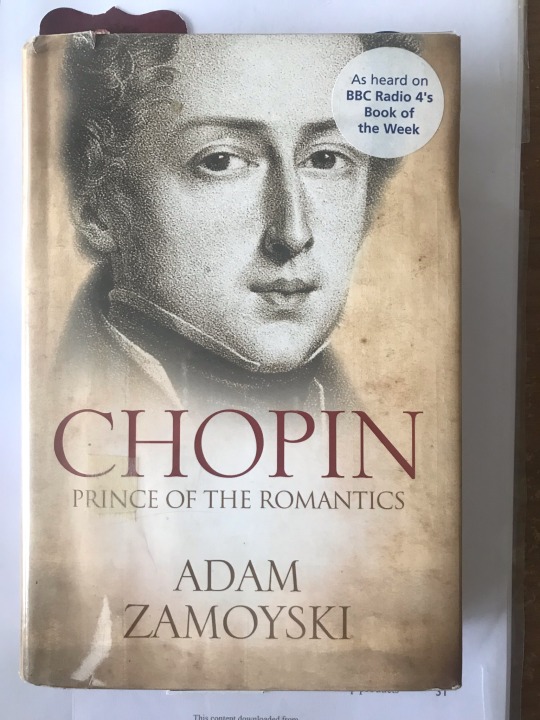
20. Uhmmmmmmm. I have sooo many. Prepare! 🤭💕
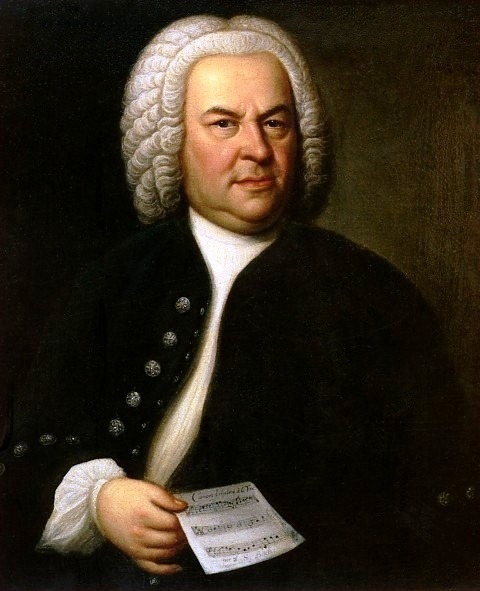
The one and only, Johann Sebastian Bach! He’s incredibly talented like omggggg how does he even come up with all these amazing pieces of music?!? 😨😳 His genius is unmatched. There will never be another composer like Bach! I have dozens of portraits and stickers of him and even a t-shirt. Omggggg it’s so embarrassing 🙈
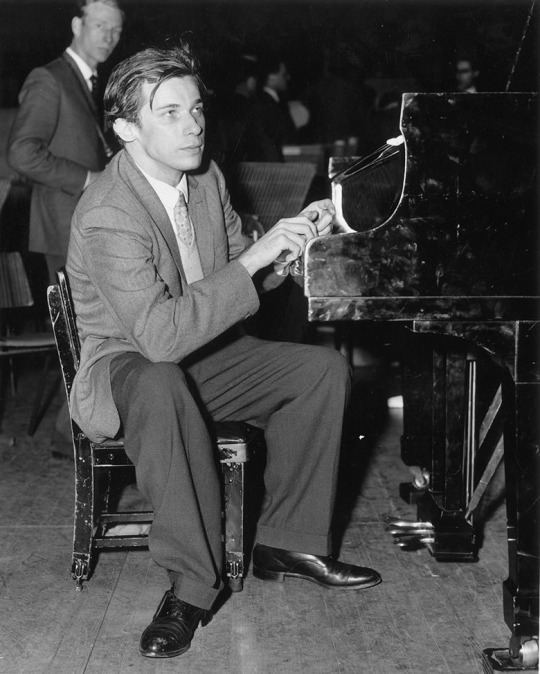
Glenn Gould, the quirky autistic Canadian Bach wizard! He’s so handsome even well into his older years. And he’s soooo eccentric, like you should read about some of his quirks, it’s really out there💀👀 Also, did I mention how talented he is?! He gets criticised a lot for his weird playing style and humming (sometimes singing) during his performances. I love it tho 😘 it really adds something to the records
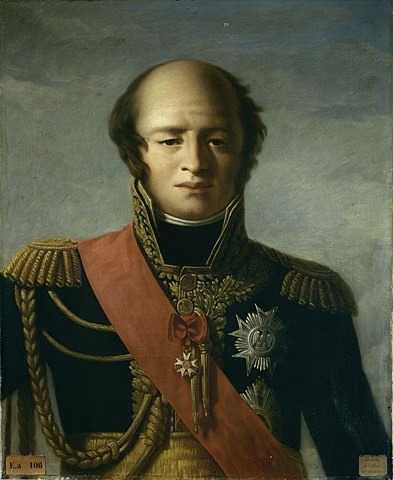
Louis👏Nicolas👏Davout👏 How can you not like this absolute beast of a man?! Sure, he was a bit rough with his soldiers, but I like a leader who doesn’t fuck around! We need more men like him! I feel for him though. He really was the least liked out of all Napoleon’s marshals, I relate to that because my fam doesn’t like me even though I’m a girl boss 👹 Poor old Davout was just doing his best! Here’s a quote that he wrote to Berthier —
“I cannot help admitting to myself that often my exactingness and my severity alienate good officers from me even before they barely have time to assess my true intentions."
Ommmgggg 😭😢
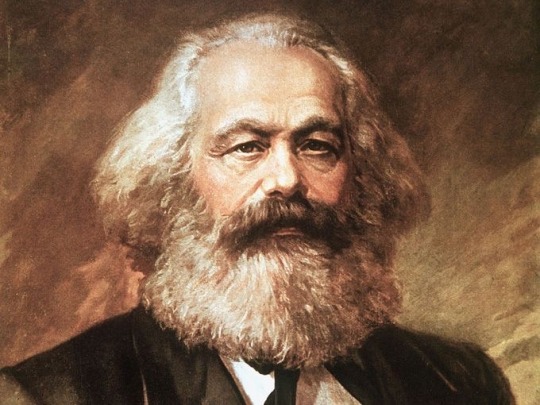
Ahemmm…. As a student I kinda have a love-hate relationship with this guy. I’ve suffered so many sleepless nights because of him 👩💻📚📚📚 But without this guy we’d probably still have our children working 16 hours for absolutely nothing (we still do actually, it’s heartbreaking). His works literally had soooo much impact on history, it’s unbelievable.
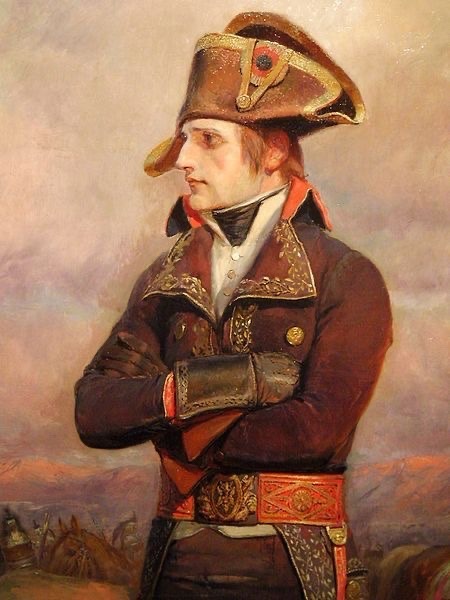
And of course, how can we forget our hero!?! I wanna be like him soooo much it aches 😫 My family genuinely don’t understand my obsession with this man, like how could they not?!! His image is literally on the wiki page for the “Great Man Theory” — that individuals with certain traits are able to affect the course of history rather than it being due to some larger force or something I dunno it’s an IR/history thing I’m studying 😢
23 notes
·
View notes
Text


Johnny Cash (1932-2003) solo Songs: "Ring of Fire," "Man In Black" Defeated Opponents: Elvis Presley, Chuck Berry Propaganda: "I know that he might look intimidating to some people but I think his sense of humor was what really added to his hotness." "weve all seen johnny cash thigh high boots and cake in the woods right. also just i think he has one of the sexiest Voices of musicians of the era"
Glenn Gould (1932-1982) solo - composer and classical musician Works: "Prelude, Cantilena, and Gigue," "A Merry Thought" Defeated Opponents: Edgard Varèse, Tony Levin Propaganda: "He was a genius whose looks got him compared to James Dean, what else can you ask for...As someone who's played Bach on the piano experiencing Glenn Gould do it is kind of its own emotion"
Visual Propaganda for Glenn Gould:

youtube
27 notes
·
View notes
Text
Sunday sounds: Goldberg Variations
youtube
“Here are the Bach pieces. They’re fairly old, I haven’t looked at them in several years. Still, I’m almost sure …” She lapsed into silence, flipping quickly through the pages of the Bach scripts on her knee, one at a time, glancing back now and then at the “Lied” on the rack.
“Ha!” she let out a cry of triumph, and held out one of the Bach pieces to me. “See there?”
The paper was titled “Goldberg Variations,” in a crabbed, smeared hand. I touched the paper with some awe, swallowed hard, and looked back at the “Lied.” It took only a moment’s comparison to see what she meant.
“You’re right, it’s the same!” I said. “A note different here and there, but basically it’s exactly the same as the original theme of the Bach piece. How very peculiar!”
“Isn’t it?” she said, in tones of deep satisfaction. “Now, why is this anonymous composer stealing melodies and treating them in such an odd fashion?”
This was clearly a rhetorical question, and I didn’t bother with an answer, but asked one of my own.
“Is Bach’s music much in vogue these days, Mother?” I certainly hadn’t heard any at the musical salons I attended.
“No,” she said, shaking her head as she peered at the music. “Herr Bach is not well known in France; I believe he had some small popularity in Germany and in Austria fifteen or twenty years ago, but even there his music is not performed much publicly. I am afraid his music is not the sort to endure; clever, but no heart. Hmph. Now, see here?” The blunt forefinger tapped here, and here, and here, turning pages rapidly."
(Diana Gabaldon - Dragonfly in Amber)
I could add the whole of the Goldberg Variations, even if only the Aria (above) is relevant to the book. I often listen to them (Bach is God) while working on my reports or posting here - lots of posts written with this as background, actually. There is nothing better to get one's scattered ideas into their best shape and form, and that - to me - is just one of music's mysteries.
If you want to listen to all of them (50 minutes or such), please (I beg you) look no further than Glenn Gould's 1981 recording, when he was half crazed already and humming all over the place. But that should not distract you, it is just a genius in dialogue with another one, nothing else. Lang Lang's recent and over-touted interpretation is absolutely horrendous, don't bother : if you know and love Bach at least as much as I do, you'll find that insulting. Víkingur Ólafsson's is a second best (and an exceptional one, at that).
Phew. Onwards to other chores. Back later in the afternoon for more adventures.
PS: 'Clever but no heart'? Oh, Mother, you are so damn wrong.
51 notes
·
View notes
Note
Hey Beatrice! I've been listening to Taylor all day, and just put on Das Lied von der Erde to cleanse the palate a bit. Do you have any other recs?
I'm screaming! Okay, I hope you listen with a copy of the German lyrics (which are very loose renderings of classical Chinese poetry) and English translations. The best composers, much like Tay Tay herself, marry word and music so well that you lose quite a lot when you ignore one and simply focus on the other.
Anyway! I was thinking about you listening to the Bach Solo Cello Suites a couple days ago, and I thought I'd recommend some Baroque solo keyboard music. Importantly, I use the word "keyboard" because the piano didn't exist yet. All this music for two hands (or, in some cases, four) would have originally been played on a harpsichord, and it's interesting to listen to it played on that instrument. Decades ago, Kenneth Gilbert and Ralph Kirkpatrick were pioneers in making a number of high-quality recordings of Bach and other Baroque composers on harpsichord, and in more recent years, the Iranian harpsichordist Mahan Esfahani has revived interest in hearing all this music on the instrument that it was actually written for. (He's also commissioned a lot of new music for harpsichord from contemporary composers, which is pretty cool.)
So, if you want to listen to it on harpsichord, go for it! The harpsichord serves the structural aspects of this music, like the extraordinary contrupuntal (i.e., simultaneous multi-line) composition, very well. For example, the large collection of preludes and fugues that Bach wrote called The Well-Tempered Clavier (Das wohltemperierte Klavier) sounds pretty good on harpsichord. However, the harpsichord is not the most expressive instrument, and the interpretive possibilities that it affords are definitely constrained relative to those afforded by the modern piano. So, what follows will be recommendations that involve pianists playing all this wonderful keyboard music from the Baroque period, for example, the sonatas of Domenico Scarlatti, who's been extremely well served in recordings by the excellent Russian pianist Yevgeny Sudbin, who's made two Scarlatti albums so far. Scarlatti's sonatas are interesting in that they're all basically 3-8 minutes long. In other words, in terms of the historical development of the form, they're baby sonatas, but they're must-hears because Sudbin's playing is gorgeous. Also, the engineering team with BIS, the indie Swedish classical label whom Sudbin records for, has done truly exemplary work in capturing the crystalline little sound worlds that Sudbin creates with each of these short works.
That said, as fabulous as Scarlatti is, compared to Bach, he's a minor figure. Baroque keyboard begins and ends with Bach. Have you ever listened to the Goldberg Variations? It's one of the grandest works ever written (I almost want to say "full stop"!) for ten fingers and two hands. It's all-encompassing, at times spiritual, melancholy, introspective, extroverted, joyful, and, ultimately, profound. In short, it is all the stuff of life itself, and it takes a helluva great artist to put it over in all its complexity and seriousness and fun. The Canadian pianist Glenn Gould became an icon due to his first recording of the work in the 1950s, a recording that kinda reflects the youthful spirit of jazz, especially bop. Gould made another, more mature recording at the end of his life in the early 1980s. It's very different, a bit longer, more focused on emotional depth and beauty, so it's probably my first choice, but both recordings are very much worth checking out. There are other outstanding recordings of the Goldberg Variations by Murray Perahia, one of the most important elder statesmen of the piano in the world today, and by Jeremy Denk, a younger American pianist who's also a ferociously, voraciously smart and interesting writer.
Bach wrote much, much more music for keyboard: Toccatas, English Suites, French Suites, Inventions, Sinfonias, etc. Also, Bach's Art of Fugue, an abstract theoretical treatise in compositional form with no instrument specified, has been recorded as a keyboard work several times. So, if you want to explore all this music in more depth, the pianists Angela Hewitt and András Schiff would be wonderful guides in your explorations. They're both among the greatest pianists alive, and they've made extensive excellent Bach recordings that go back decades. Moreover, lots of pianists have made wonderful one-off recordings of individual works. For example, the awesome Polish pianist Piotr Anderszewski made a recording of English Suite No. 6 around 20 years ago that's to die for. In addition, in recent years, three young pianists have put out Bach albums for Deutsche Grammophon that are loose compendiums of various short keyboard works as well as transcriptions of pieces that Bach composed for violin, organ, or other instruments: Rafał Blechacz, another Polish pianist who's best known for being a world-class Chopin specialist but who's a genius with everything that he turns his attention to (e.g., back in 2010, I went to a recital of his in which he performed not only Chopin but also Bach, Mozart, and Debussy, and it was one of the best recitals I've ever heard in my life); the Russian pianist Daniil Trifonov, whose recording of Rachmaninoff's Paganini Rhapsody I recommended last month as probably the best ever made; and my favorite pianist of the last 6-7 years, Iceland's Víkingur Ólafsson. In particular, Ólafsson's album won some big-time classical album of the year prizes. It's so thoughtful in how the tracks are organized and sequenced, and it's so beautifully played.
I also have to give a shout out to another Víkingur Ólafsson album, Debussy • Rameau. Debussy is one of the S-tier masters of the late 19th and early 20th centuries. He opened up whole new possibilities in tonal harmony, and his piano works are among the greatest ever written, right up there with those of Bach, Beethoven, Chopin, and Liszt. Much like Ólafsson's Bach album, Debussy • Rameau is a genius work of programming in how it intersperses pieces by Debussy with pieces by Jean-Philippe Rameau, the greatest French composer of the Baroque era. Sadly, he gets overshadowed by his peers Bach, Vivaldi, and Handel, but Rameau was an extraordinary composer who deserves more love. In Ólafsson's hands, the way in which the works from the two periods complement each other, as though in some sort of friendly game of call and response, is fascinating. And his playing is just (chef's kiss) and makes me wish that I could play piano. Sigh. But for real, I'm dying to hear him live in person at some point. He's such a brilliant keyboard artist.
Okay, I think that does it for now! Let me know if you check out any of these recordings!
5 notes
·
View notes
Text



OTD in Music History: Legendary piano virtuoso Josef Hofmann (1876 - 1957) is born in what is now Poland. One of the greatest musical prodigies in history, Hofmann was also almost universally hailed as one of the finest concert pianists of his day. Unfortunately, by the early 1930s, Hofmann was beginning to suffer from the effects of chronic alcoholism, although he still retained most of his incredible pianistic command into the early 1940s… as evidenced by the fact that both Rudolf Serkin (1903 - 1991) and a very young Glenn Gould (1932 - 1982) later recounted lasting magical impressions from Hofmann’s late concerts. But following Hofmann's abrupt departure from the famed Curtis Institute of Music (where he had served as Director since 1927) in 1938, a combination of increasingly heavy drinking, mounting marital problems brought on by infidelity, and a loss of interest in public performance gradually eroded his formerly-peerless pianism. As Hofmann’s close friend (and arguably his greatest colleague) Sergei Rachmaninoff (1873 - 1943) sadly observed during that time: "Hofmann remains the greatest pianist alive -- when he is sober and in form. Otherwise, it is sadly all but impossible to recognize the great Hofmann of old.” Pianist Oscar Levant (1906 - 1972) later similarly opined: "One of the most terrible tragedies of music was the disintegration of Josef Hofmann as an artist. His last public concert [in 1948] was a true ordeal for all of us..." PICTURED: A publicity photo which Hofmann signed and inscribed to a fan in Lynchburg, Virginia in 1935, during that final period of fading glory.
“When studying a new work, it is imperative that a tonal picture of perfect clarity should be prepared in the mind before the mechanical (or technical) practicing begins.” – J. Hofmann “The problem with being a ‘wunderkind’ is that the ‘wunder’ disappears at the same time as the ‘kind.’” – J. Hofmann
A few assessments of Hofmann the pianist from great contemporaries and prominent music critics: “Hofmann’s style was one of the phenomena of twentieth-century pianism. Above all he had tone… a magical tone, never hard even at moments of greatest stress; a shimmering, tinted, pellucid tone. His playing had a degree of spontaneity, of ‘lift,’ of dash, of daring and subtle rhythm, that was unparalleled. Perhaps only his close friend Rachmaninoff was titan enough to stand by his side as an equal. But even Rachmaninoff never had Hofmann's poetry, color, and vitality. Nobody so made the piano sing. When Hofmann played, there was the feeling of a tremendous and original musical personality. His rubato was carefully measured, yet it always flowed freely and naturally. His playing had breathing space, and his basses had exceptional clarity. (Hofmann used to despise what he scornfully called ‘right-hand pianists.’) Never did the playing sag, never were there dead spots, never did the tensile quality slacken. A strong classic element was represented in the purity of his pianistic approach, and his interpretations -- romantic but not exaggerated -- had a measure of classicism.” – Harold C. Schoenberg “Hofmann was a unique personality, a unique pianist. What he did was perfect, at least for him. Every time I heard Hofmann play, I thought to myself: ‘Every note that he plays – that is what I would like to play, too.’” – Jorge Bolet “‘Hofmann’s musical interpretations were always delivered with great logic and beauty.” – Earl Wild
#classical music#opera#music history#bel canto#composer#classical composer#aria#classical studies#maestro#chest voice#Josef Hofmann#Józef Hofmann#pianist#piano#music teacher#piano virtuoso#virtuoso#pedagogue#Piano Concerto#Concerto#Metropolitan Opera House#Metropolitan Opera#Met#classical musician#classical musicians#classical history#history of music#historian of music#musician#musicians
4 notes
·
View notes
Video
youtube
Mendelssohn: Chamber Symphony op 80a mov. 4
Felix Mendelssohn-Bartholdy was born on this day 215 years ago. His 80th opus 'String Quartet No. 6 in F Minor' is one of Mendelssohn's greatest contributions to the chamber music repertoire. Probably it is also the most tormented work he ever composed as it sings out of his symbiotic relationship with sister Fanny Hensel, a fine composer who died at age 41. Here is an excerpt from my orchestral arrangement of this work also known as 'Requiem for Fanny'. https://youtu.be/VAQ6I4-hrzQ Felix Mendelssohn-Bartholdy: Chamber Symphony op 80a 'Requiem for Fanny' (String Quartet No. 6 in F Minor) IV. Finale: Allegro molto Sinfonia Toronto / Nurhan Arman, Conductor String orchestra version by Nurhan Arman. Recorded live in CBC Glenn Gould Studio on January 25, 2019.
#youtube#classical music#orchestra#symphony#chamber music#string quartet#toronto#mendelssohn#happy birthday
10 notes
·
View notes
Text
Meet the Competing Voice Actors!
After the preliminaries and days of deliberating, here are you VOICE ACTORS COMPETING! One will take home the spot of Tumblr's Favorite Voice Actor!
A note before they are introduced! If you would like to support any of them send in an ask or make propaganda, any propaganda you make and post yourself should have me tagged! As well using the tags #favevabracket or #favevabracket2023!
And a quick reminder about the two rules that will be staying active!
No harrassment, hate, or vitriol will be tolerated. We are here to celebrate the work of voice actors not tear each other down
This is all for fun! Do not take it super seriously!
Good luck to all of our competitors!
Kirby Morrow
Rob Paulsen
Robbie Daymond
Tiana Camacho
Alex Hirsch
Khoi Dao
Megumi Ogata
Ray Chase
Sungwon Cho
tara strong
Yuri Lowenthal
Alejandro Saab
Billy Kametz
Billy West
bryce papenbrook
Cree Summer
Grey DeLisle-Griffin
Kevin Conroy
Phil Lamar
Zach Aguilar
Zeno Robinson
AJ Michalka
Alex Brightman
Allegra Clark
Ashley Johnson
Christopher R. Sabat
Daws Butler
Eartha Kitt
Erika Harlacher-Stone
Frank Welker
J. Michael Tatum
Jack De Sena
Jason Griffith
JK Simmons
John DiMaggio
June Foray
Kristen Schaal
Mark Hamill
Richard Horvitz
Steve Blum
Tom Kenny
Wendie Malick
Aaron Dismuke
Aaron Paul
Aimee Carrero
Alison Brie
Ami Koshimizu
Angela Bassett
Ashley Ball
ashly burch
Avi Roque
Ayumu Murase
Ben Schwartz, baby!
BETH MAY
bill farmer
Bill Scott
brandon rogers
Caitlin Glass
Casey Kasem
Cassandra Lee Morris
Cecil Baldwin
Christine Cavanaugh
Clark Duke
Colleen Clinkenbeard
Daman Mills
Dan Castellaneta
Dan Provenmire
Dani Chambers
Dante Basco
Dave Fennoy
David Tennant
Deedee Magno Hall
Deven Mack
Doris Grau
Doug Boyd
Dylan Marron
Elizabeth Maxwell
EG Daily
Elijah Wood
Ellen McLain
Eric Vale
Erin Fitzgerald
Josey Montana McCoy
Greg Chun
Gu Jiangshan
Guilherme Briggs (brazilian)
Haley Tju
Harry Shearer
Haruka tomatsu
Helen Gould
Hynden Walch
Jack McBrayer
Jackson Publick
Jaime Lynn Marchi
Jason Griffith
Jason Liebrecht
jason marsden
Jennifer Hale
Jerry Jewell
Jim Cummings
Jim Ward
John Burgmeier
John Swasey
Johnny Yong Bosch
Julie Kavner
Justin Cook
Kaiji Tang
Katey Sagal
Kdin Jenzen
Keith David
Ken Sansom
Kent William
Kevin Brighting
Kevin R Free
Kieran Reagan
Kimberly Brooks
Kimiko glenn
Kyle Igneczi
Kyle McCarley
Laura Bailey
Lauren Tom
Leah Clark
Liam O’Brien
Lorenzo Music
Lucien Dodge
Lucille Bliss
Lydia Mackay
Lydia Nicholas
Maddie Blaustein
Mae Questel
Mae Whitman
Maggie Robertson
Mara Wilson
Mark Oliver
Matthew Mercer
Matthew Zahnzinger
Maurice LaMarche
Max Mittelman
Mel Blanc
Melissa Hutchinson
Michael Adamthwaite
Micheal Sinterniklaas
Mike Judge
Monical rial
Natsuki Hanae
Nicole Tompkins
Olivia Olson
Olivia Wilde
P.M. Seymour
Parker Simmons
Patricia Ja Lee
Patrick Pedraza
Paul Castro Jr
Paul Frees
Penny Parker
Pete Gustin ( i think thats how it's spelled)
Peter Cullen
Phil Harris
Phil Hartman
Ricco Fajardo
Roger Craig Smith
Roz Ryan
Sandra Oh
Sarah Miller-Crews
Sayaka Ohara
Scatman Crothers
Scott Adsit
Scott Mcneil
Stanley Tucci
Stephanie Beatriz
Stephen Merchant
Steve Whitmore
Tabitha st Germain
Takaya Kuroda
Tom Kane
Tress McNeil
Veronica Taylor
Vincent Tong
Will Arnett
Yasuo Yamada
Zach Callison
Bobbie Moyinhan
Josh Brener
Andrew Francis
Brent Millar
Sebastian Todd
Kestin Howard
Lizzy Hofe
Andy Cowley
Todd Haberkorn
Yoshimasa Hosoya
Russi Taylor
#your competitors! | masterpost#favevabracket2023#favevabracket#other competitions#masterpost#polls#fandom polls#tumblr polls#tournament#poll society
30 notes
·
View notes
Text
Enoch Arden...and other literary ramblings
That poem, with the composition played by the masterful GLENN GOULD originally composed by STRAUSS, is an utter masterpiece in dramatic poetry--not an epic per say, but in terms of narrative poetry a la poems like Pearl, Metamorphoses, Aneid, and Lays of Ancient Rome (to name a few).
Modern and Post-Modern works are wonderful, do not get me wrong about that. However, something about classics is always a hit for me.
I know I didn't have a specific focus for my English degree--however if I were to have had one it would have been classical poetry (or just poetry in general).
I love plays, prose, essays--etc--But nothing like poetry gets me utterly enthusiastic!
"I love words!"--A certain owl-boiiii
What I am currently reading:
Red, White, and Royal Blue--McQuiston
Swann's Way (though I do plan on reading the entire In Search of Lost Time)--Proust
What I plan on reading next:
The Aenid-- Virgil
The Metamorphoses (Haven't finished it yet!)--Ovid
The Idiot--Dostoyevsky
2 notes
·
View notes
Text

Monday, 11-11-24, 8am Pacific
G'mornin', folks...a groggy Mr. Baggins with you. I don't know about y'all, but I need at least two hours of coffee sipping and cogitation before I'm ready to face the world, so we're gonna start our mornings off with Morning Coffee Music: selections to entertain and energize. One of ths best radio DJs I ever listened to back in Austin, was John Aelli, on KUT in the mornings for literally decades. It's in his "anything goes" free-form spirit I start this first edition of Coffee Music.
In 1964, I was a five year old kid boppin' to this on the big old Zenith booming in the corner. Here's trumpeter Al Hirt and his 1964 hit, called appropriately enough, "Java".
youtube
Here's a little bit of Beatlefluff from 1966 guaranteed to have you humming along. From Revolver, here's Paul's "Good Day Sunshine".
youtube
Here's one of the two hits by the band "Vanity Fair"; from 1970 it's "Early In The Morning".
youtube
Rossini wrote six String Sonatas at the age of twelve. Here's our old friend Neville Marriner and the ASMF to play numbers 1 and 6, on an Argo recording. A friend once said that the first sonata could have easily been the soundtrack to a Leave It To Beaver episode, saying it sounds like "Breakfast with The Cleavers".
youtube
Glenn Gould's Bach is essential to any good morning! Here is his 1960 recording of Bach's "Italian Concerto", a more charmingly refreshing twelve minutes you won't find anywhere.
youtube
Moving from the modern piano to the harpsichord now, this is music by Franz Joseph Haydn, his Concerto in D Major. I've chosen the recording by the person responsible for the harpsichord's rebirth as a viable instrument in the early 20th Century, Wanda Landowska. This was recorded in 1937, Mme. Landowska is accompanied by conductor Eugène Bigot, with an unnamed orchestra.
youtube
Moving from Papa Haydn to his young protege, Ludwig Beethoven, we hear a very early work of Beethoven's, written when he was sixteen. It is counted among the works he wrote before his official Opus 1 was published, the "Works Without Opus" Number 37, Trio for bassoon, flute, and piano. This delightful little piece is performed by pianist Daniel Barnboim, flutist Michel Debost and bassoonist André Sennedat, from a 1980 recording on DG. It was this very recording that served as my introduction to the piece. I've had a copy of the original album since it was issued. Enjoy.
youtube
Next are some pieces played by oboist John Dee and The Tantallon Ensemble, from their album entitled "Under a Near Sky", which is, sadly not on YouTube in its entirety, so here are a couple of selections. First is Gabriel Pierne's "Piece an sol"
youtube
This is Franz Krommer's Quartet in C major
youtube
And this morning's final selection, one of my absolute favorite pieces of all time, and this version of it specifically. Here is Igor Stravinsky conducting his big bad 1945 revision of his brilliant "Firebird Suite". Recorded in 1946 on a Columbia Masterworks recording. Enjoy, and I will be back with you later this afternoon.
Until then, be kind, babies, be kind.
Baggins out.
youtube

13 notes
·
View notes
Text
I am going to travel back in time and give Glenn Gould some cookies and a medal and a knighthood. Not, like, an official knighthood, I'll knight him with Gremlin's foam sword and declare him a chevalier of the Order of Make My Brain Work.
4 notes
·
View notes
Text






Top first-time watches of 2024 (documentary edition)! Fiction film edition here.
My thoughts under the cut.
Glenn Gould: Off the Record / Glenn Gould: On the Record (Kroitor and Koenig, 1959)
Terrific little two-parter by the NFB that gives a really interesting glimpse of Gould's personality, eccentricities, and above all his talent -- like I'm not even a Bach guy but Jesus Christ, Gould's just banging out brilliant interpretation after brilliant interpretation like it's nothing!!! Really love the juxtaposition between Gould at home (Off the Record) and at work (On the Record), the way he speaks about his music and plays for himself vs the way he records it and performs it for others (and the way they react to it!). Easily my favourite NFB doc, hands down.
Tokyo Olympiad (Ichikawa, 1965)
The visuals in this one are CRAZY. The torch-bearer running past Mt. Fuji, the contortions of the pole vaulters as they push themselves higher and higher, the lone marathon runner closing out the games... it's poetry in motion, a stunning portrait of victory and loss that perfectly showcases the beauty of sport. Also there's the added bonus of it not being Nazi propaganda like Olympia (being the other seminal Olympics doc), making it much easier to enjoy the sexy sexy pole-vaulting sequences.
City of Gold (Koenig and Low, 1957)
Another banger from the NFB!!! The film that pioneered the Ken Burns Effect before Ken Burns did, and also made me obsessed with the Klondike Gold Rush for like a month!!! Loved the choice to make it personal, to have it be the narrator's story of his family and his hometown rather than just a dry overview of the facts; it helped Dawson City feel like a real place even while playing up the whole mythic grandeur of the gold rush thing. I've said it before and I'll say it again: nobody is doing it like the NFB.
Black Is... Black Ain't (Riggs, 1994)
Marlon Riggs is my favourite documentarian so I'd been looking forward to this one for quite some time, and it didn't disappoint. Though I prefer his more experimental works (Tongues Untied is my all-time favourite doc), I do consider this to be his magnum opus; part exploration of the way homophobia and sexism function within the black community, part deathbed confessional by a man who still has so much left to say, it's the culmination of style and ethos that Riggs spent his career working towards. Highly recommend watching Ethnic Notions as a companion piece; it's really interesting to note Riggs' evolution of style as he returns to many of the same points a decade later.
Symposium: Ladder of Love (Sheehan, 1996)
Kind of cheating to slide this one in here as it's stretching the definition of documentary; it's an anthology film by Nik Sheehan and his friends about their personal definitions of love, anchored by a group discussion about the films and the general Toronto queer scene of the 90s. The shorts vary in quality (I will never be a Scott Symons enjoyer), but for the most part I felt they were imaginative, thought-provoking, and deeply moving. This is one that's gonna stay with me for a long time.
Statues Also Die (Marker, 1953)
A really interesting essay doc about the treatment of African art in Western culture -- the way it's been stripped of meaning through colonization, devalued and commodified by a society that has no interest in the particularities of African cultures. Suffers a bit from being made by Frenchmen in the 1950s (woke for their time, but 50s-era Frenchmen nonetheless), but still raises some very interesting questions about the Western art canon, and the effect of Westernization on the African art canon.
#honourable mentions: no sad songs. burden of dreams. blades and brass.#man this has been SUCH a good year for canadian docs for me. nfb.ca i owe you my life.#not so good of a year for documentary features though... only two of these are over an hour in length 😬
0 notes
Text
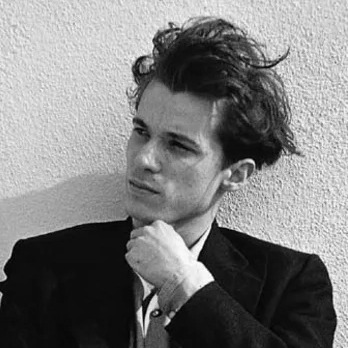

Glenn Gould (1932-1982) solo - composer and classical musician Works: "Prelude, Cantilena, and Gigue," "A Merry Thought" Defeated Opponents: Edgard Varèse Propaganda: "He was a genius whose looks got him compared to James Dean, what else can you ask for...As someone who's played Bach on the piano experiencing Glenn Gould do it is kind of its own emotion"
Tony Levin (1946-) solo - session musician Songs: "The Kids," "Welcome to My Nightmare" Defeated Opponents: Rick Wakeman Propaganda: none
Visual Propaganda for Glenn Gould:
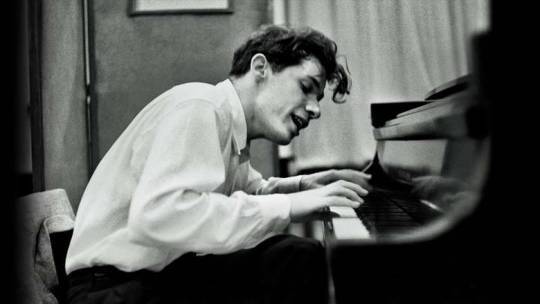
youtube
youtube
11 notes
·
View notes